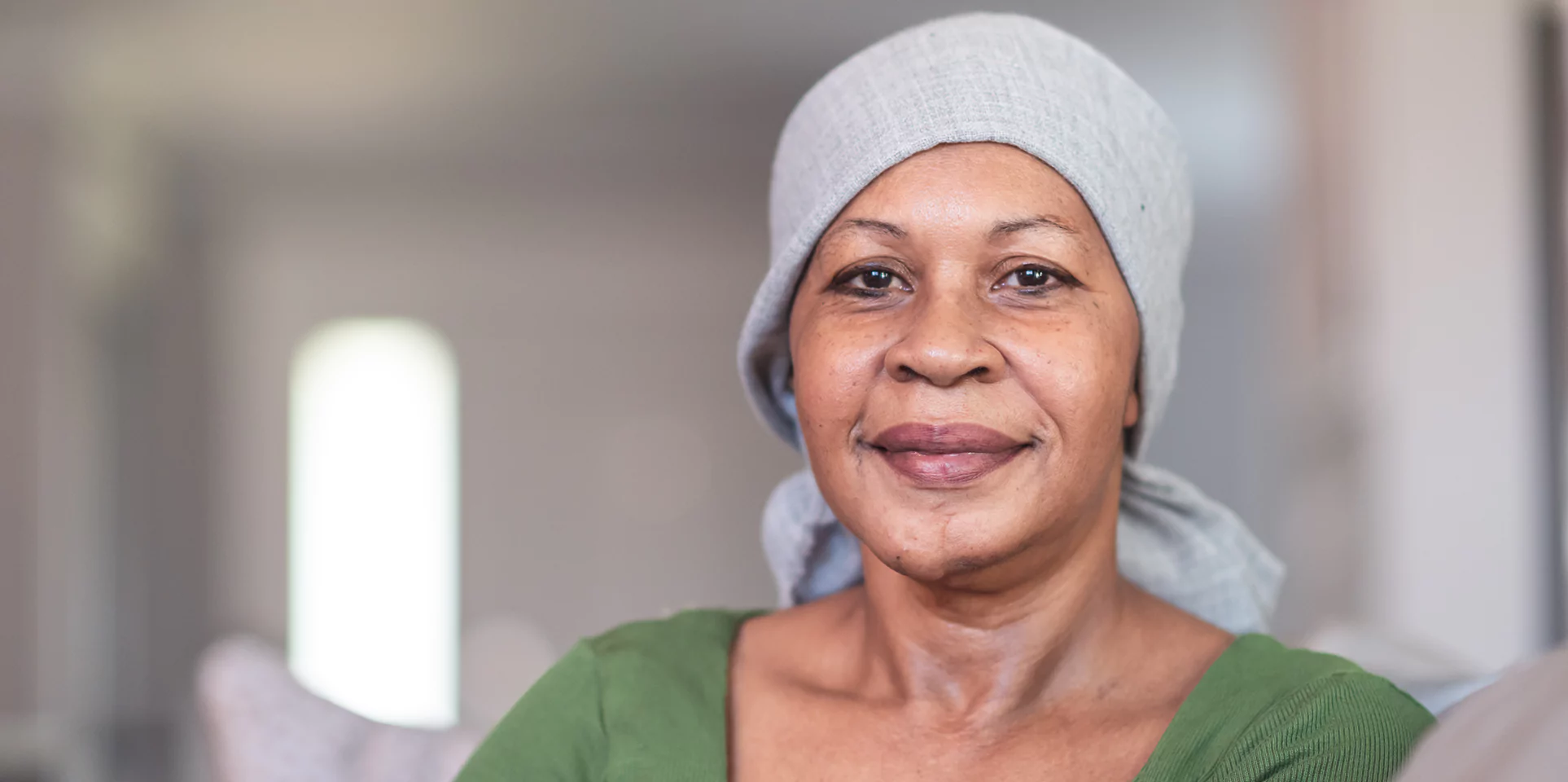



With Cancer Disrupting Your Life, Could You Use Financial Help?
When you’re too sick to work, you can get monthly financial assistance from Social Security Disability benefits, helping you afford essential needs and live a more peaceful life while you deal with your health.
You might not think of cancer as a “disability.” But when your case of cancer means you’ll be off work for an extended time, you can get disability benefits for cancer.
Cancer comes in so many forms that you may also wonder if your particular cancer diagnosis qualifies for disability benefits. What matters most when you’re applying for Social Security Disability is that you can’t work, not the type of cancer you have.
That said, Social Security specifically mentions many cancers in its guide to impairments that qualify for disability benefits, including:
- Bone cancer
- Breast cancer
- Cervical cancer
- Cancer of the esophagus
- Gallbladder cancer
- Kidney cancer
- Large intestine cancer
- Liver cancer
- Leukemia
- Lymphoma
- Lung cancer
- Multiple myeloma
- Pancreatic cancer
- Prostate cancer
- Salivary gland cancer
- Skin cancers (including melanoma)
- Skull cancer
- Small intestine cancer
- Soft tissue cancers
- Stomach cancer
- Thyroid Cancer
- Uterine cancer
For a disability claim for cancer, you’ll need medical evidence that backs up your diagnosis and makes clear how your illness prohibits working.
You can get professional help with your disability benefits claim—for no fee until you win benefits.
Worked with an experienced disability lawyer who knows what you’ll need to get disability benefits for cancer. Gary Disability Law has helped thousands of people in Wisconsin. We help people in Appleton, Green Bay, throughout the Fox Valley and Northeast Wisconsin.
Let’s get you more support as you fight cancer.
 A cancer patient speaking with her nurse.
A cancer patient speaking with her nurse.
Special Cancer Disability Benefits for Aggressive Cases
Most of the time, it takes months or longer than a year to complete the process of being approved for Social Security Disability.
It’s common to get denied disability benefits and then need to pursue an appeals process.
If you have an aggressive form of cancer, however, you may be able to get a faster decision.
Social Security recognizes when a disease obviously leaves you unable to work and grants what it calls a “Compassionate Allowance,” letting you skip the complicated disability claim process and get benefits sooner.
This is what Social Security says about it:
“Compassionate Allowances are a way to quickly identify diseases and other medical conditions that, by definition, meet Social Security’s standards for disability benefits. . . . The Compassionate Allowances program identifies claims where the applicant’s disease or condition clearly meets Social Security’s statutory standard for disability.”
Social Security recognizes many cancers for Compassionate Allowances, including:
- Adrenal cancer
- Bladder cancer
- Bone cancers
- Breast cancer
- Esophageal cancer
- Gallbladder cancer
- Glioblastoma brain cancer
- Head and neck cancers
- Intestinal cancer
- Kidney cancer
- Leukemia
- Lymphoma
- Lung cancer
- Mesothelioma
- Ovarian cancer
- Pancreatic cancer
- Prostate cancers
- Salivary cancers
- Skin cancers
- Stomach cancer
- Thyroid cancer
Make sure that Social Security understands that your situation should be given a Compassionate Allowance. To start, get a case evaluation from a Wisconsin disability lawyer at Geary Disability Law. The conversation is free.
 A cancer patient being examined by a nurse.
A cancer patient being examined by a nurse.
Can You Get Disability if You Have Cancer? How to Qualify.
If your cancer doesn’t qualify for a Compassionate Allowance, you’ll need to follow a legalistic process of proving that the severity of your illness undermines your ability to work.
Sometimes people work while they get cancer treatment, or they return to work quickly. Social Security approves cases where it’s clear you’ll be unable to work for at least a year.
You’ll need to provide information about your work history and demands of your work, statements from friends and family about how cancer limits your daily activities, and a lot of medical evidence from your treatment.
These are the kinds of medical evidence you may need:
- Biopsy reports
- Chemotherapy details
- A written diagnosis
- Exploratory surgery reports
- Hospitalization records
- Medical history of your cancer
- Medical imaging
- Radiation treatment records
- Recurrences of your cancer
- Side effects of treatments
- Surgery records
When you’re sick and your energy is low, it’s a lot for them to ask you to gather evidence and make legal arguments for why you should get help.
So, your disability attorney handles those tasks for you, letting you feel better knowing someone capable is taking care of it.
A Social Security Disability lawyer can help you avoid mistakes in your benefits application and improve your chances of winning benefits.
But along the way, your lawyer also can make the process easier for you and make sure you’re treated with dignity, respect and care.
If you’re undergoing cancer treatment and out of work in Wisconsin, talk to Geary Disability Law for help onto a more secure path.
Social Security Disability FAQs
It’s only natural for you to have many questions when your life has been disrupted by health problems and you need financial assistance. Get started on your path forward with our answers to some of the questions we hear most often:
DISABILITY FAQs
Hear from a Geary Law Firm Client
“When I did have a court date, he was confident and knew the law perfectly and was dedicated to my case.”




